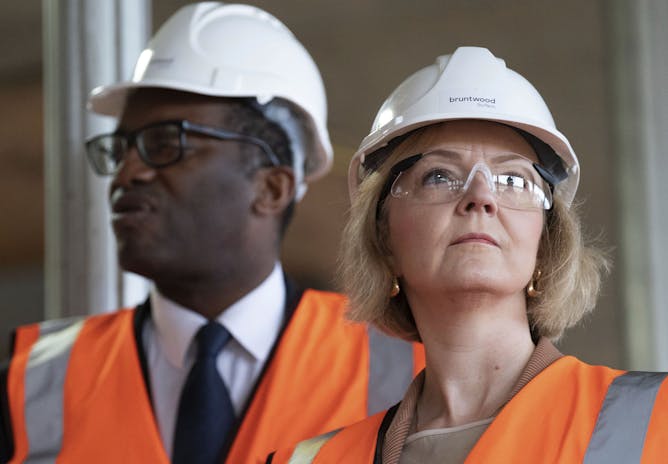|
When I saw reports that the British pound was approaching parity with the dollar, my first thoughts were, rather selfishly, about the prospect of savings the next time I visit London and discounted bottles of single-malt scotch. But reading my U.K. colleagues’ excellent coverage of the crisis that led to the pound’s plunge prompted me to wonder how such a financial disaster could happen so quickly – and to look for a scholar who could unpack the consequences for a global audience.
So I asked David McMillan, a finance professor at the University of Stirling, to explain for me, and my readers, how a mere “mini-budget” created a crisis that sent the pound crashing and interest rates soaring, threatening a wider financial and housing market collapse.
If you’re looking for a deeper dive into the issues at play here, the University of Liverpool’s Costas Milas examines the Bank of England’s £65 billion rescue – intended to prevent a broader crisis – and its downsides.
And Steve Schifferes, an honorary research fellow at City, University of London, takes readers on a tour of the U.K.‘s many “economic whirlwinds of the past.”
|

David McMillan, University of Stirling
Liz Truss took over as prime minister with an ambitious plan to cut taxes by the most since 1972 – investors balked after it wasn’t clear how she would pay for it
|
Quote of the week 💬
|
-
“Africa stands to lose out because the current reshaping of supply chains is not intended to shift trade, investments and jobs towards African trade partners. Rather it’s got to do with efforts by the EU and US to insulate their supply chains from being disrupted for geopolitical reasons by less trusted partners with significant global market share in key raw materials, commodities and other essential products."
– Jonathan Munemo, professor of economics at Salisbury University, from his story Africa risks losing out on trade as rich countries cement relationships with trusted partners
|
|
Business
|
-
Enrico Bonadio, City, University of London; Alina Trapova, University of Nottingham
Court decision protects trademarks that help consumers make informed choices.
-
Ilan Noy, Te Herenga Waka — Victoria University of Wellington; Samuel Becher, Te Herenga Waka — Victoria University of Wellington
The rules around climate-related financial disclosures are now being written. But the narrow definition of their target audience is a missed opportunity that can still be rectified.
|
|
Markets
|
-
Daniel O'Leary, University of Southern California
Buying and selling stocks – with real or play money – is a way to harness the wisdom of the crowd about questions like who is going to win a competition.
|
|
Economy
|
-
Anna Rhodes, Rice University; Max Besbris, University of Wisconsin-Madison
Research on Hurricane Harvey found that flood insurance and strong social networks were key factors in determining how quickly people recovered, regardless of socioeconomic status.
|
|
Energy
|
-
David Fadiran, University of Cape Town
There should be a better long-term strategy for foreign direct investments in Nigeria that’s not tied to its oil reserves.
|
|
Real estate
|
-
Kimberly Merriman, UMass Lowell
What is real estate actually worth? It depends a lot on who you ask and what method they use to work it out.
|
|